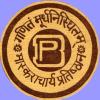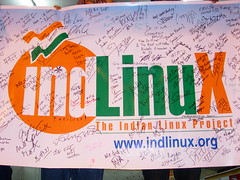(Last weekend, Pune played host to Arun Ranganathan, Technology Evangelist for the Mozilla Foundation, Seth Bindernagel, Director of Localization, and Axel Hecht, who co-ordinates localization from a technical perspective, and Ragavan Srinivasan, from Mozilla Labs. We had a meeting of the Mozilla Folks and the Pune Open Coffee Club. POCC member Gurminder Singh, posted this “event report” on the Pune Startups mailing list. It is reproduced here with permission.)
The whole session proved to be very interesting. Here is short summary about session on 21st/ Feb 2010 at SICSR Pune.
It Started with Arun’s presentation which covered
Open web platform
Open web platform does not mean open source, it means the standards on which web is based should be open. for e.g PHP is open standard and used by facebook to build million dollar business, Google supports and extensively uses open standards. Organizations should involve in defining and shaping open standards while keep in view the way web is evloving.
Using this open web platform million dollar businesses can be built.
The HTML5 standard has many revolutionary features to change the how people interact with web. One of them is Video
Future of Video on Web
Currently there is no standard format of video on web. We can see avi, mov, mp4, flv etc floating all over. People mistakenly assume flash to be standard because of its widespread use. Flash is a proprietary format from Adobe and lacks the open standard definition which makes it hard for Open standard browsers like Firefox to support it. Therefore HTML5 is coming up with new open format for video “Ogg Theora”. Recently after a lot of community pressure YouTube announced support for Ogg theora format.
In HTML5 using elements like canvas, video and SVG a video can be treated as data and manipulated on runtime. for eg user can put a video inside a video on the fly. It can be used to make ajax calls on video and running it without any third party software.
Firefox capturing device orientation
With new hardware capabilities like accelerometer very common in devices, firefox has come up with new api to capture device orientation events. This capability can be used for better user experience detecting the motion.
Fonts for web
There was small discussion about a company name typekit.com . Typekit provides user with all the fancy fonts which till today were shaped in some image editing software and pasted as image on website.
GeoLocation
Firefox 3.6 is having support for geolocation api. Geolocation identifies the users location and points it on google maps. Under the hood it uses google gears service.
Web3GL
Future firefox versions (maybe 3.8 , 3.9) will have support for 3D graphics. This is based on web3gl component which interacts with OpenGL to render graphics on screen.
The Mozilla-based Business Idea competition
At the end of session Seth, Arun, Ragavan and Axel organized a small contest where in audience was divided in 10 teams of 3. Each team was given 5 minutes to come up with business idea and present it to audience. Presentation time was 1 min and after questioning about business model etc a winner was decided.
Out of the ten business ideas, these 4 were in finals:
- Typekit.com for indian languages – typekit.in
- e-learning classrooms for physically impaired – using video in video capabilities of HTML5
- Making a video using Mashup – e.g Google maps,text to speech audio
- Using Geolocation api from firefox – giving user local search results like restaurants
The winner was: e-learning classrooms for physically impaired.
It was great experience to interact with team. We are hungry for more such sessions. Thanks for coming and thanks for reading this through 🙂
About the Author – Gurminder Singh
By profession, Gurminder is a System programmer (C, Linux kernel,Wireless Networks) and has a hobbyist he is a Django, Firefox extensions, and web-2.0 developer. His interests are building useful products(Mashups) using web2.0 components
He is learning new technologies with his experiment http://www.tutit.net. It is a social tuting place, where a user can publicaly store tutorial bookmarks. It is hosted on Google App Engine using Django, Jquery and Dojo.
Gurminder is on twitter as @sgurminder, and can be reached at sgurminder@gmail.com


![Reblog this post [with Zemanta]](http://img.zemanta.com/reblog_b.png?x-id=25b0b1a8-78c6-42b5-ae91-a27440ddb3e1)

![Reblog this post [with Zemanta]](http://img.zemanta.com/reblog_b.png?x-id=95f76777-a2b1-4bc6-a563-406673eb0eac)

![Reblog this post [with Zemanta]](http://img.zemanta.com/reblog_b.png?x-id=5d0bea17-4dc2-4ce8-8760-410cd3650906)
![Reblog this post [with Zemanta]](http://img.zemanta.com/reblog_b.png?x-id=1b0e42af-1119-4fd0-bdba-a890ef2c6998)

![Reblog this post [with Zemanta]](http://img.zemanta.com/reblog_b.png?x-id=43f92d9b-80e9-498f-8113-465a0cb41f1c)